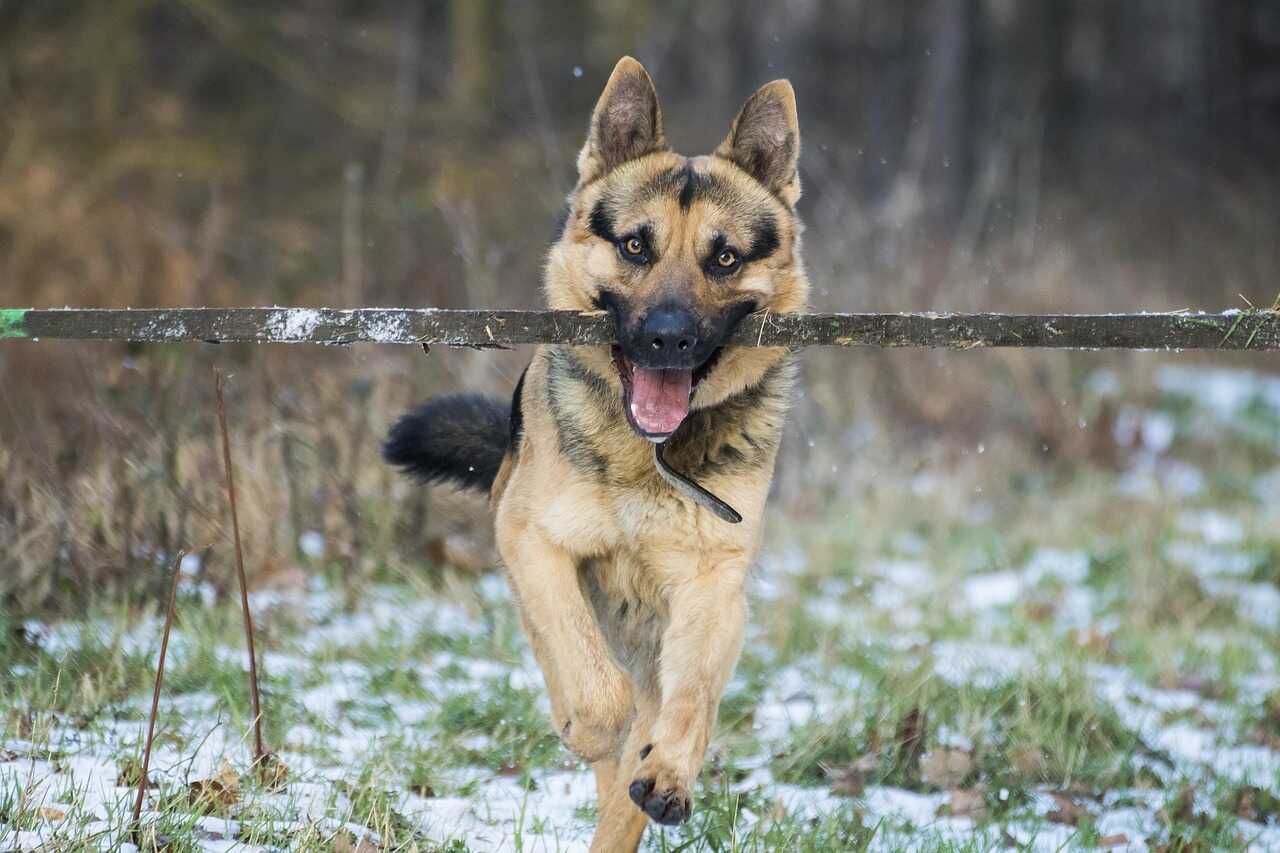German Shepherd is one of the most popular and flexible dog breeds worldwide. Acknowledged for their intelligence, loyalty, and adaptability, they excel as running dogs, family pets, and protectors. This in-depth guide reveals the history, traits, care requirements and precise dispositions of this first rare breed of German Shepherd.
History of German Shepherd
The German Shepherd Breeders, or “Deutscher Schäferhund” in German, has roots dating back to the late nineteenth century. Max von Stephanitz, a German cavalry officer, is credited with developing the breed. His goal was to create the final running canine: one that was smart, trainable, and physically successful.
Von Stephanitz decided his best prototype was a herding canine named Hektor Linksrhein, later renamed Horand von Grafrath. Horand ended up being the first registered German Shepherd and the muse of the breed. Von Stephanitz founded the Verein für Deutsche Schäferhunde (Society for the German Shepherd canine) in 1899, setting the requirements for the breed.
The breed’s first rate competencies rapidly gained popularity beyond herding. German Shepherds had been applied in police paintings, search and rescue, and navy roles, specifically all through international conflicts I and II. Their bravery, intelligence, and loyalty tailor-made them critical in numerous roles, securing their area as one of the most popular breeds internationally.
There are many types of German Shepherd like as Black German Shepherd Puppies, Sable German Shepherd Puppies, Blue German Shepherd, German Shepherd Husky mix, white German Shepherd, German Shepherd Golden Retriever mix, Long Haired German Shepherd, Black lab German Shepherd Mix and German Shepherd cross Doberman Puppies.
Excellent Physical Tendencies of the German Shepherd
German Shepherds and Belgian Shepherd is the one of the most famous breed in the world.
Length and Assemble: Adult males commonly stand 24 to 26 inches tall at the shoulder and weigh sixty five ninety kilos, on the same time as women are slightly smaller at 22 to 24 inches and 50 to 70 pounds. They’re robust and properly muscled with a swish gait.
Coat and Colorations: German Shepherds have a double coat comprising a dense undercoat and an at once, climate-resistant outer jacket. Commonplace sunglasses consist of black and tan, sable, black and red, and solid black. Some rarer colorings, like white or liver, exist but aren’t identified with the resource of all breed requirements.
Special Abilities: Their erect, triangular ears, practical almond-fashioned eyes, and hairy tail deliver them a regal look.
After Birth: German Shepherds Usually live 9-13 years, with proper care and attention.

Temperament and Character of GSD Breeders:
German Shepherds are diagnosed for their unwavering loyalty and balanced temperament. Their individual makes them suitable for various roles, from their family companions to operating experts. Key developments consist of:
Loyalty and Devotion: They shape sturdy bonds with their families and are pretty defensive, making them high top notch guard dogs.
Intelligence and Trainability: Ranked because the 0.33 maximum smart canine breed, German Shepherds excel in obedience schooling and complicated responsibilities. They thrive on mastering new talents.
Self Assurance: Their self confident nature permits them to live calmly and accrued in challenging situations.
Strength and Force: Those puppies are fantastically energetic and require ordinary exercise and intellectual stimulation to prevent boredom and adverse behaviors.
At the same time as definitely best with their households, German Shepherds may be reserved around strangers. Right socialization from an early age guarantees they turn into properly-mannered, assured adults.
Education: Unlocking the capability of a German Shepherd, Training a German Shepherd is each a duty and a profitable enjoy. Their intelligence and eagerness to examine reason them to perfect candidates for diverse sorts of schooling:
Early Socialization: Introduce them to a sizable form of people, environments, and critiques inside the route of puppyhood to construct self perception and decrease tension.
Primary Obedience Education: Early on, teach commands including “sit down,” “live,” “come,” and “down.” Consistency and effective reinforcement are key.
Superior Education: German Shepherds excel in superior sports activities like agility, fragrance detection, and tracking. These activities keep them mentally sharp and physically active.
Process Orientated Roles: Many German Shepherds find fulfillment in roles like police work, search and rescue, or remedy dog responsibilities. Their natural pressure and trainability make them the best for those obligations.
Intellectual Stimulation: Include puzzle toys, obedience-training situations, and problem-solving video games in their daily lives to stimulate their minds.
Workout and Pastime Necessities:
German Shepherds are immoderate power dogs that want everyday bodily and intellectual stimulation. Without good enough exercise, they will lose interest or boom behavioral troubles. Right here’s how to meet their goals:
Each day Walks: At least 1 to 2 hours walks in line with day is vital. Longer walks or hikes are even better.
Excessive Electricity Play: Video games like fetch, tug of warfare, and frisbee help burn off energy and strengthen the bond between canine and proprietor.
Off Leash Time: If viable, provide at ease, off-leash areas for them to run freely and discover. Canine sports activities: sports like agility, fly ball, or dock diving are exceptional stores for his or her electricity and herbal competencies.
Fitness and Sturdiness:
Like numerous breeds, German Shepherds are predisposed to certain health situations. Popularity and proactive care can decorate their best of existence. Common health problems consist of:
Hip and Elbow Dysplasia: Genetic situations inflicting joint malformation, essential to arthritis or mobility troubles.
Degenerative Myelopathy: A progressive spinal wire sickness that impacts older German Shepherds, leading to loss of coordination and paralysis.
Bloat (Gastric Dilatation Volvulus): A life threatening condition wherein the stomach twists, requiring immediate veterinary intervention.
Hypersensitive Reactions and Pores and Skin Issues: They may amplify food or environmental allergies, fundamental to itching and inflammation.
Exocrine Pancreatic Insufficiency (EPI): A condition affecting digestion that may be controlled with enzyme dietary supplements.
To Sell Fitness and Longevity: Keep a healthy weight to reduce strain on their joints. Make certain they achieve good enough workouts and mental stimulation.
Grooming a German Shepherd
German Shepherds have slight grooming needs, in most cases because of their double coat. Normal grooming facilitates preserving their coat health and decreases loss. Right here are a few tips:
Brushing: Use a de shedding device or slicker brush 2 to 3 times per week to take away loose fur. During heavy dropping seasons (spring and fall) each day brushing is usually recommended.
Bathing: shower them every four weeks, or as needed, with the usage of a dog unique shampoo.
Nail Care: Trim their nails often to prevent overgrowth and pain.
Dental Hygiene: Brush their enamel several instances every week to keep oral fitness and save you from gum ailment.
Ear Care: Check and clean their ears weekly to prevent infections.
Weight Loss Plan and Vitamins for their Health:
German Shepherds require a nutrient rich eating regimen to help their lively manner of lifestyles. The right weight loss plan contributes to their normal fitness and well being. Do not forget the subsequent:
Protein Wealthy meals: German Shepherds food with meat due to the fact the number one element to assist muscle improvement and electricity ranges.
Things to Manage: Avoid overfeeding to prevent weight problems and associated fitness issues. Comply with the feeding suggestions furnished in the canine food package and adjust based totally on hobby degrees.
Hydration: Offer sparkling, easy water always.
Nutritional Dietary Supplements: incorporate dietary supplements like glucosamine for joint health and omega-3 fatty acids for a shiny coat, but best below veterinary steering.
Dwelling with a GSD Breeders
German Shepherds are rather adaptable but thrive in environments wherein they may be active individuals of their own family. proper here are a few troubles:
Space: Even as they can adapt to rental residing with sufficient workout, a home with an outdoor is good.
Circle of Relatives Dynamics: They are terrific with youngsters and can coexist with different pets if nicely socialized. however, their herding instincts can also additionally motivate them to “spherical up” small children.
Time Dedication: Those puppies require a lot of time and attention. They do satisfactorily in houses where they are not left by themselves for extended periods.
Protecting Nature: Their natural guarding instincts propose they take their position as a circle of relative protectors seriously.

Well known German Shepherds in History and Famous Tradition:
German Shepherds have left an indelible mark on history and popular way of life. incredible examples encompass:
Rin Tin Tin: Determined as a doggy at some point of international conflict, Rin Tin Tin became a Hollywood famous man or woman, appearing in several movies and bringing a worldwide reputation to the breed.
Strong Heart: Some other early dog actor who captivated audiences in silent movies.
Military Heroes: German Shepherds have served bravely in wars, going for walks as messengers, seeking and rescuing puppies, and bomb detectors.
Contemporary day Celebrities: The breed often appears in films and television shows and serves as a companion animal for public figures.
Why a German Shepherd is best for you?
German Shepherds aren’t just pets they are lifelong partners, protectors, and companions. Their loyalty, intelligence, and versatility make them suitable for a wide range of households and lifestyles. However, they require a dedicated owner willing to fulfill their exercise, schooling, and socialization dreams.
If you’re able to take responsibility for their care and give them the love and attention they deserve, a German Shepherd will reward you with unwavering loyalty and unrivaled companionship.
Conclusion
The German Shepherd is a breed that is not distinctive. From their storied information to their unequaled versatility, they have hooked up again and again, which is why they’re one of the maximum preferred dogs worldwide. By using information on their precise needs and characteristics, you could make sure that your German Shepherd flourishes and will become a loved member of your circle of relatives.
FAQ about German Shepherd
1. Are German Shepherds good family types?
Yes, they’re pious, defensive, and great with families when trained duly.
2. Are German Shepherds aggressive?
Not naturally, but they can be defensive; early training and socialization are crucial.
3. Do German Shepherds bark a lot?
Yes, they’re oral and may bark at non natives or strange noises.
4. Are German Shepherds good with kiddies?
Yes, but supervision is recommended, especially with youthful children.
5. Do German Shepherds get along with other faves?
With proper socialization, they can live peacefully with other creatures.
6. How much exercise do they need daily?
At least 1 to 2 hours of physical and internal stimulation.
7. Do German Shepherds exfoliate a lot?
Yes, they’re heavy shedders, especially in spring and fall.
8. How frequently should German Shepherds be prepped?
Encounter them 2 to 3 times per week; daily during slipping seasons.
9. How frequently should German Shepherds be bathed?
Every 6 to 8 weeks unless they get dirty.
10. What’s the stylish diet for a German Shepherd?
High protein, high quality canine food with a blend of kibble and raw or cooked flesh.
11. What’s the average lifetime of a German Shepherd?
7 to 10 years.
12. What health issues are common in German Shepherds?
Hip dysplasia, degenerative myelopathy, and digestive diseases.
13. How do I help hipsterism dysplasia in my German Shepherd?
Maintain a healthy weight, give common supplements, and avoid inordinate jumping as a puppy dog.
14. Do German Shepherds have sensitive tummies?
Yes, numerous are prone to digestive issues; a balanced diet is pivotal.
15. How frequently should German Shepherds visit the warhorse?
At least once a time for check-ups, more constantly for puppies and seniors.
16. Are German Shepherds easy to train?
Yes, they’re largely intelligent and eager to learn.
17. At what age should I start training a German Shepherd?
As early as 8 weeks old.
18. Can German Shepherds be left alone for long hours?
Not recommended; they need fellowship and internal stimulation.
19. Are German Shepherds good guard dogs?
Yes, they’re naturally defensive and excel in guarding places.
20. Do German Shepherds need a large yard?
Not inescapably, but they do need diurnal exercise and space to move around.













